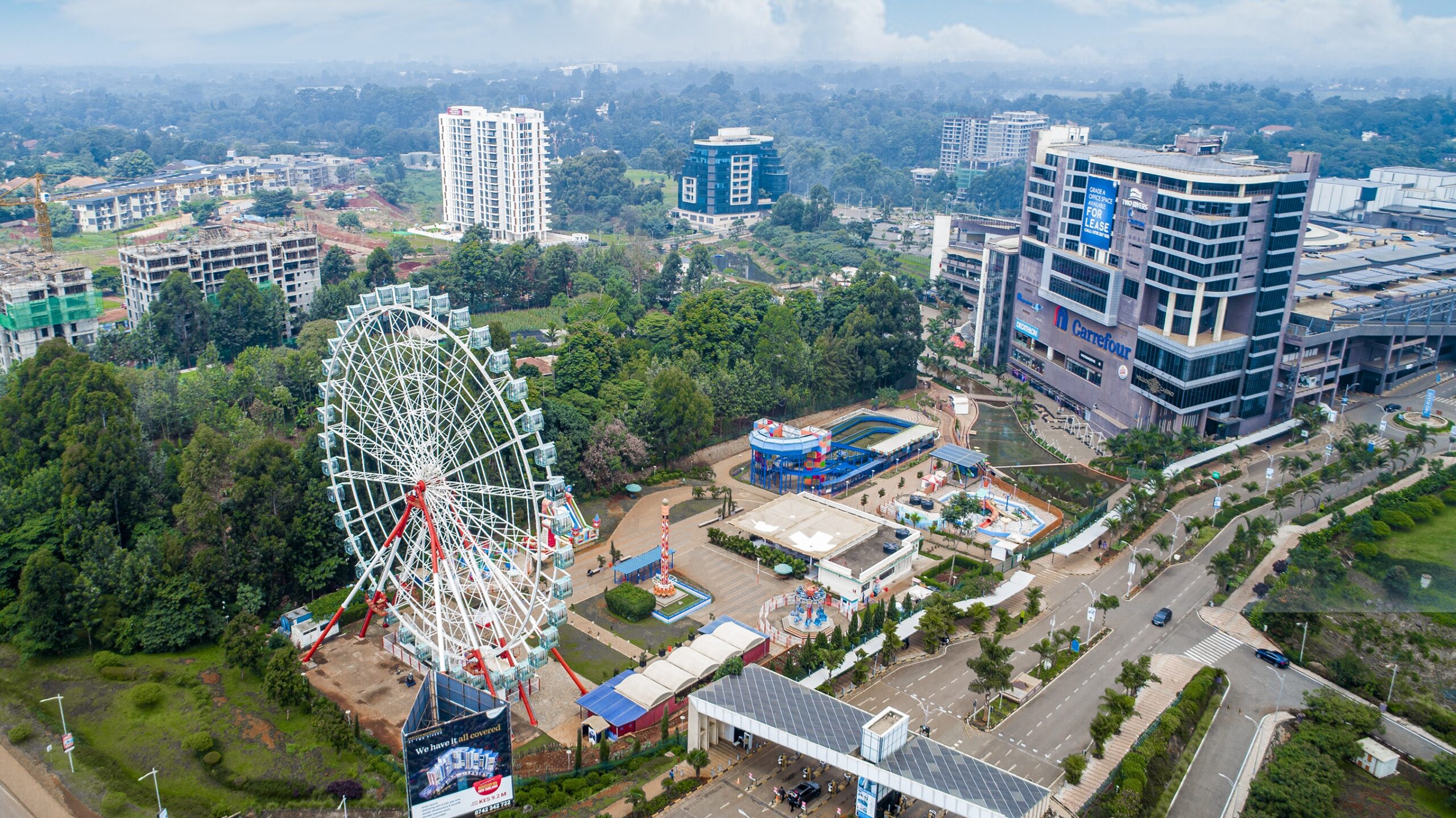Kenya has launched the first private special economic zone (SEZ) in Nairobi, the country’s capital.
The free zone was established to strengthen Kenya’s position as a regional hub for digital talent and businesses.
In June 2023, the Two Rivers International Finance and Innovation Centre (Trific) became a designated special economic zone. The Gigiri/Runda neighbourhood’s current 412,800 sq m mixed-use building, which includes offices, a hotel, residential flats, and a retail mall, will house the free zone, which will be 259,000 sq m in size.
According to James Mworia, the CEO of Centum Group, a publicly traded investment firm that has the majority of the shares in the Two Rivers development, the free zone will serve as a “plug-and-play solution” for businesses looking to collaborate with a local business in order to expand a portion of their operations into Africa.
“By actually making it actionable and simple for enterprises to come and establish part of their business here, we have moved beyond saying Kenya is an attractive location,” he claims. In the Two Rivers development, utilities, 1.2MW of solar panels, and a master plan to develop up to 1.2 million square metres of land are already in place.
Read also: Kenya fintech Zanifu secures $11.2 million
High-growth industries
Business process outsourcing (BPO), technology, and financial services firms are the target markets for Trific. According to Mr. Mworia, “more than 20 entities” are now submitting applications to establish themselves in Two Rivers as SEZ enterprises.
“Kenya has a very deep pool of human capital and talent that is globally competitive,” he claims, adding that locating in Nairobi might assist businesses in addressing labour shortages in other parts of the world.
A number of businesses have opened offices in Nairobi in the last year as part of Kenya’s well-established services industry, which will account for 54% of GDP in 2021, and a flourishing digital start-up community, dubbed Silicon Savannah. This includes the French company Hummingbirds, which creates and finances carbon initiatives, and the Ethiopian research firm Frontieri.
According to statistics from fDi Markets, Nairobi is really the most sought-after location for foreign business services investments in east Africa, although it lags behind other African centres like Johannesburg, Cape Town, Casablanca, and Cairo.
A number of tax adjustments have also been made as a result of Kenya’s 2023 Finance Bill, which was presented to Parliament in April 2023. The introduction of deferred taxation of shares that start-ups give to their employees, which makes Trific even more alluring, is one of the “a number of issues that were resolved,” according to Mr. Mworia.
Nairobi is the fourth most competitive African city to establish shared services centers/BPO operations, after Addis Abeba, Cairo, and Accra, according to a research of 13 African cities conducted on fDi Benchmark. The model gives cost variables a 75% weighting and quality elements a 25% weighting.
Kenya authorities approve Moniepoint’s acquisition of Kopo Kopo
SEZ in comparison to other free zones
In addition to Tatu City in Nairobi, there are 24 additional free zones in Kenya, however most of them are primarily geared towards luring manufacturing, agricultural, and logistical firms. Trific was created in collaboration with the Kenyan government, which has been aggressively utilising SEZs to draw FDI and create jobs.
Mr. Mworia claims that Trific would be “complementary” to other zones and is collaborating with the Nairobi International Financial Centre, which was founded in 2021 to promote close financial institution cooperation and investment.
Companies recognised as SEZs will be eligible for a range of financial benefits. These include a corporate tax rate of 10% (as opposed to 30% outside the SEZ), a withholding tax rate of 5% (as opposed to 15%) on dividends, interest, and royalties, and an exemption from import tariffs on machinery.
According to Mr. Mworia, the incentives provided to SEZ firms allow them to “be globally competitive at the point of providing the service,” whether to clients in Kenya or outside.
According to Mr. Mworia, there would be a “huge relaxation” on work permits and residence for businesses looking to hire international expertise. “Now you have a hub that pulls everything together and overlays it with some degree of fiscal competitiveness,” he adds.




